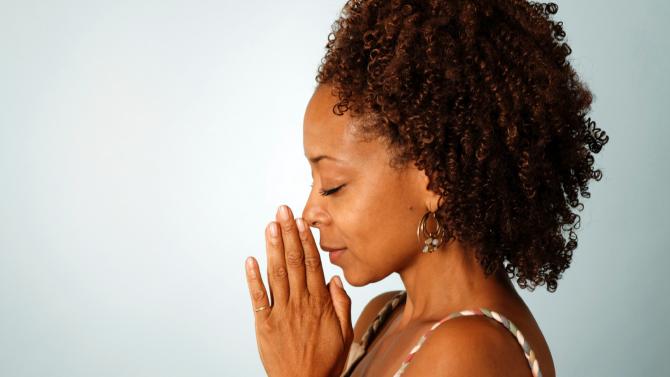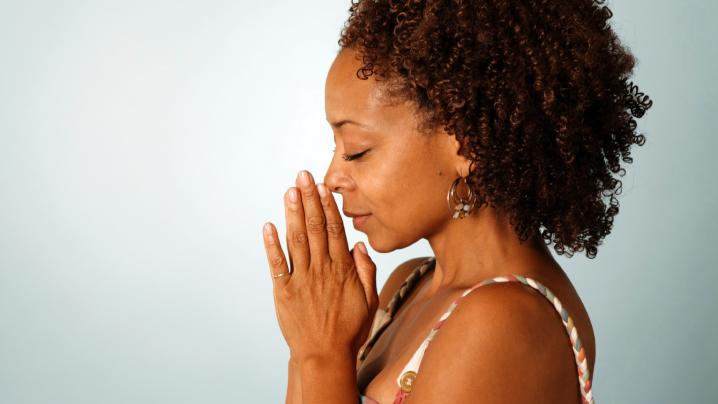[ad_1]

I’m a black woman who loves hip-hop. And I don’t mean that in an “I have a gym playlist that includes a little Hov” kind of way. I mean it in the “At least once a day I use rap lyrics or their song titles to express myself” kind of way. Like when Hillary Clinton addressed the audience at the Black Girls Rock! award show, all I could do was yell, “We don’t believe you. You need more people,” and “You wasn’t with me shooting in the gym.” My love of hip-hop comes from an extensive knowledge about the history and culture. Which also means the often misogynistic lyrics and messages are not lost on me. In fact, even as a Nas stan, I have yet to forgive him for the song “You Owe Me.”
Yet I’m still a hip-hop head. No matter how much I enjoy an artist, the record comes to a screeching halt in my head when misogyny is featured on the track. I openly acknowledge this contradiction and have conversations about it and debate the merits and demerits of loving a musical genre that doesn’t always love me back. Yet, while I can talk about hip-hop’s woman problem, there’s something much deeper and paradoxical about which I still struggle to find words, something that is far more meaningful to me: my spiritual life.
The notion that I am a black, Christian, social-justice advocate often causes a deep sense of cognitive dissonance that I rarely discuss but is often triggered. These feelings were most recently provoked by Mississippi Gov. Phil Bryant signing a “religious-freedom law.”
According to the Clarion-Ledger, Bryant stated that the purpose of the law is to “protect the rights of people with deeply held religious beliefs.” For example, the bill makes it lawful for a business to tell an LGBTQ couple that they are welcome to spend their money with it, but their wedding (or anything close to a wedding) could never be held on its premises. This is made possible because of the language in the bill, which defines marriage between a man and a woman. Even as a heterosexual woman, I recognize this bill is a form of discrimination cleverly disguised as protection.
The selective application of biblical Scriptures in service of a dominant culture is triggering to me. No matter how much I enjoy the centering spiritual practices of Christianity, everything comes to a screeching halt when bills like the religious-freedom law emerge, reminding me of how these same Scriptures, now used to discriminate against the LGBTQ community, were once used to justify enslaving black people. The dissonance it evokes is fueled by my natural inclination to push back against any system that is attempting to oppress and lawfully discriminate against a group of people. It makes me angry. It makes me want to fight. But it often leaves me exhausted by my own internal fight.
The fact that I enjoy and rely on spiritual practices taught by Christianity while simultaneously struggling with biblical Scriptures that are oppressive causes me to question so many things. I question the possibility of my own guilt in using biblical Scriptures as a form of manipulation, and when I am being completely uncensored with myself, I question everything I was taught about Christianity in America. Yet more often than I can count, when I have these types of questions or struggles, I have them alone.
Unlike with misogyny and hip-hop, I don’t know what a dialogue on the hypocrisies within my faith would look like, or how it would begin. Would it start out by stating, “Yo, does anyone else feel some type of way about discrimination in the name of Jesus, or is it just me?” This is a difficult subject to approach in the black church, where, ironically, people who are no strangers to oppression are speaking volumes with their silence.
I can’t be the only black Christian who has these struggles that are triggered by laws like the one in Mississippi, laws that are legal forms of discrimination. Yet I struggle to start this conversation where I probably have more questions than answers, more “wants” than solutions. In my dream world, such complexities would be easy to fix. If I ruled the world, everyone striving for social justice would operate under one love. I would bridge the gap between members of the black church and the LGBTQ community. But in reality, what I would settle for is a layered, open discussion about black people, Christianity and social justice, hopefully sooner rather than later. The weight of this paradox is messing with my soul like ether.
[ad_2]





















